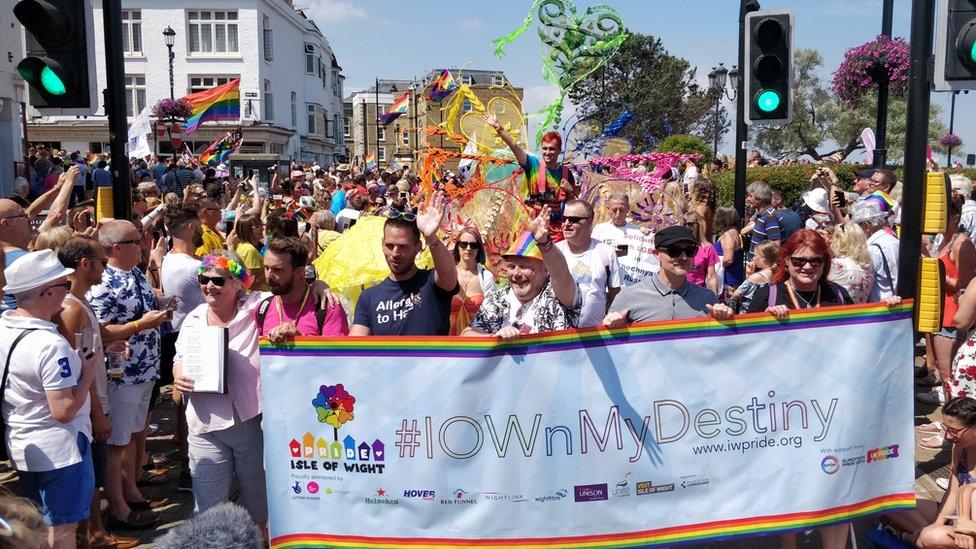It's a Sin: Gay on the Isle of Wight during the Aids epidemic
- Published
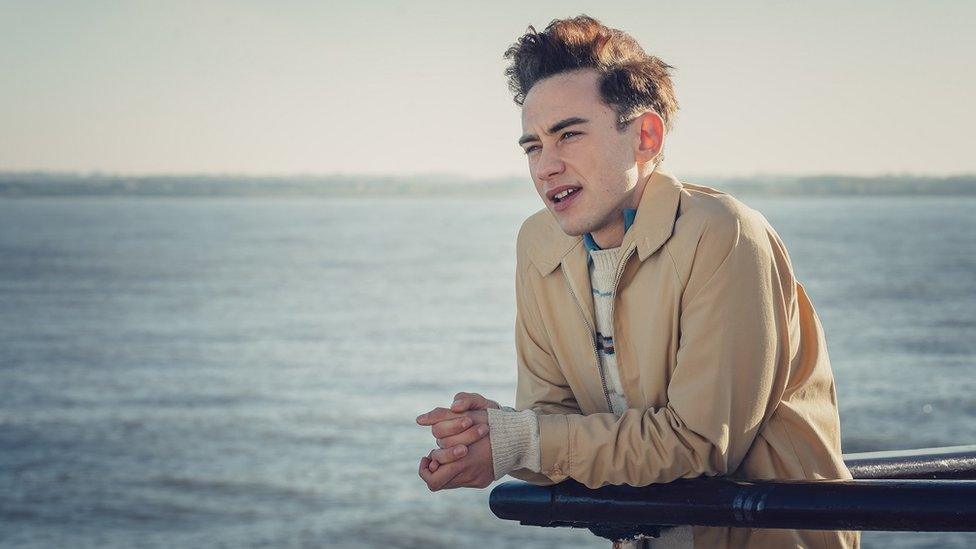
Musician and actor Olly Alexander plays Isle of Wight native, Ritchie Tozer in It's a Sin
It's a Sin has been an emotional watch - not least for members of the Isle of Wight's gay and lesbian community who lived through prejudice and isolation in the 1980s and 90s.
The Channel 4 drama, which ended on Friday night, was penned by Russell T Davies and tells the story of Ritchie Tozer - an 18-year-old from the island whose family do not know that he is gay, and who leaves for university, bright lights and excitement of London in the 1980s.
He ultimately makes a sad return home across the water as the HIV epidemic casts its devastating shadow.
It's a story that echoes with many in the island's LGBT community who lived through those times - being shamed for the 'disgrace' of coming out, while also while also living in fear of Aids.
'It's a Sin was my life - I lived that'
Karl Love was the island's first youth community support worker in HIV and Aids prevention in the early 1990s.
When he arrived on the island with his partner David Hill, he admitted it had a "reputation for being closed-minded and backward", and he found a gay community that was "largely hidden and very frightened".
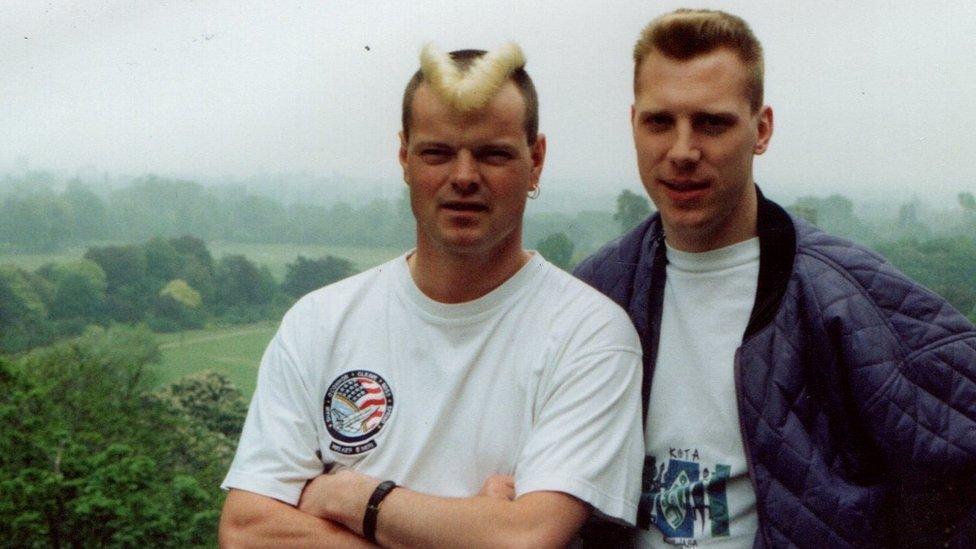
Karl Love (left) moved to the island with his partner David Hill
Mr Love remembers the nicknames the community used in conversations so anyone overhearing would be none the wiser - "Marigold, Gladys, Lady Di, Margaret Thatcher and many more".
"We were a community that was isolated by the Solent," he said.
"Many were bisexual, living lives of complexity - if they were caught, they didn't just lose their jobs, some of them lost their families and their lives."
"There were LGBTQ suicides on our island. They are remembered though. I remember."
Now an Isle of Wight councillor, Mr Love recalled police raids by the vice-squad at Coppins Bridge in which 22 gay men were arrested.
"They were shamed and distressed. It was almost like a game - how many could the police get in that weekend?"
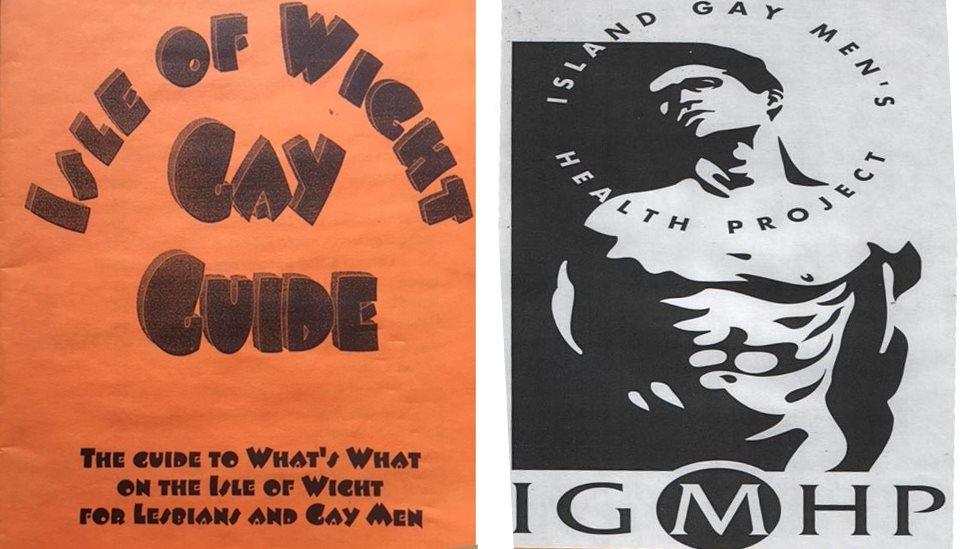
Mr Love was involved in early campaigns aimed at supporting the gay and lesbian community
As in It's a Sin, the impact of the HIV epidemic was felt on the island.
Mr Love began working to promote the safe sex message among the gay population and supporting those with the virus.
"At that time HIV was still a death sentence.
"It was all in the shadows - it was 'let's not frighten the community'. We had about five or six cases officially who were receiving treatment on the island although many chose to travel to the mainland for tests and treatment.
"It's a Sin is so real. I've been emotional about it in a way I haven't been before.
"It was my life, I lived that - talking to people in hospices and holding hands of people dying.
"One man with HIV - we met in graveyards because he couldn't let his family find out.
"When I think back, I always say 'what more could I have done to support that person' - the truth is, I couldn't do anything because he wouldn't let me.
"He died in agony. I will always carry that with me."
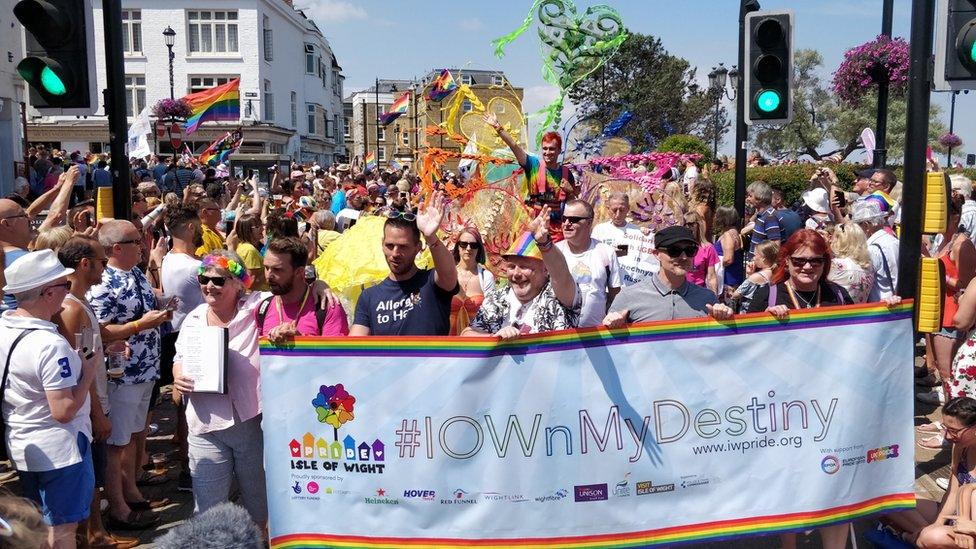
The Isle of Wight was chosen to host the 2018 UK Pride event
However, alongside the heartbreak were the "fantastic parties", many, appropriately for the home of sailing, with the Gay Cruising and Sailing Association.
Members flew their own secret burgee (flag) to identify themselves to each other at sea - even if they couldn't be seen talking together in public on the island.
"Many were executives or had occupations where if it ever came out that they were gay it would be frowned upon, and they would lose their positions in their own sailing clubs. So being on a boat was perfect for them.
"Once we left port you knew that you could enjoy just being together, as we were."
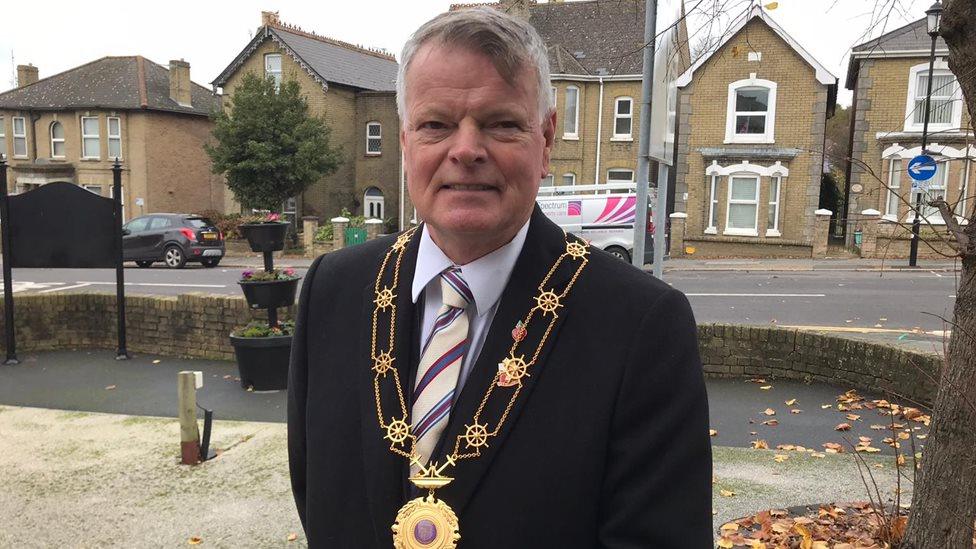
Karl Love now sits on Isle of Wight Council as an independent and is deputy major for East Cowes
While he believes the island has made strides in its attitudes towards the LGBT population, not least in hosting its first Pride event in 2017, Mr Love believes there is still some way to go on the journey.
"Things are so much better now - Isle of Wight Pride is a great thing.
"But when all the banners have come down, they put the costumes away for another year, where does that leave our island people?
"That's what important about It's a Sin - I'm hoping that it will in some way support those people who still live very much in the margins, who are hidden and frightened to come out."
'I cried my eyes out watching it'
Joanne Brady was 18 when she moved to the Isle of Wight from the town of Drogheda, in Ireland, in the early 1980s.
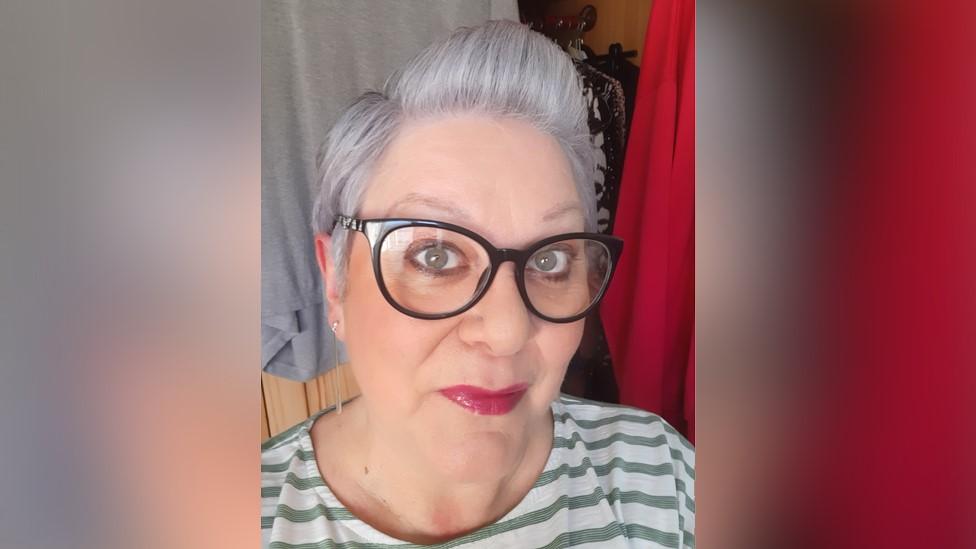
Joanne Brady helped up a helpline for people with HIV and AIDS
She said: "I worked in a factory and I remember being taken into the office with my then-girlfriend and we were told to change our lifestyle or face the sack - that we were 'disgusting'.
"There was an underground scene - we met in each other's houses we had a great time, but it was very hush-hush. People that knew, knew, and we looked out for each other.
"The Blitz nightclub in Newport had a gay night - but no-one went, we were too scared.
"We had the Crab Shack in Seaview - a secret cabaret night. We did have great, great times."
Nevertheless, the storyline of Ritchie struggling with both family who don't know he's gay and an unaccepting community, resonated with Ms Brady.
"I get why lads left - it wasn't accepted. A hell of a lot moved away and didn't come back," she said.
Ms Brady also helped set up a helpline on the island counselling people with HIV and Aids.
"It's a Sin is actually what it was like - the sheer ignorance. I cried my eyes out watching it. It brings back memories - a lot of sad memories.
"It was awful the way people were treated."
Ms Brady went on to lead the island's first pride procession in 2017, but believes there is "still a lot of homophobia" on the island.
"I have trans friends and they are going through the fight we had back in the 80s and 90s."
Hidden heritage
Mr Love and Ms Brady are among those whose stories and experiences have been recorded as part of a lottery-funded oral history project, Out on an Island.
Director Franko Figueiredo said it aimed to capture the "untold and often hidden heritage".
"People of all ages to highlight a section of history, largely ignored and often erased, particularly in rural communities.
"There is still a lot of misunderstanding and bigotry that we need to overcome.
"Out On An Island can show us that the island can and should be a diverse, inclusive home for all its visitors and inhabitants."

Follow BBC South on Facebook, external, Twitter, external, or Instagram, external. Send your story ideas to south.newsonline@bbc.co.uk, external.
Related topics
- Published3 November 2019
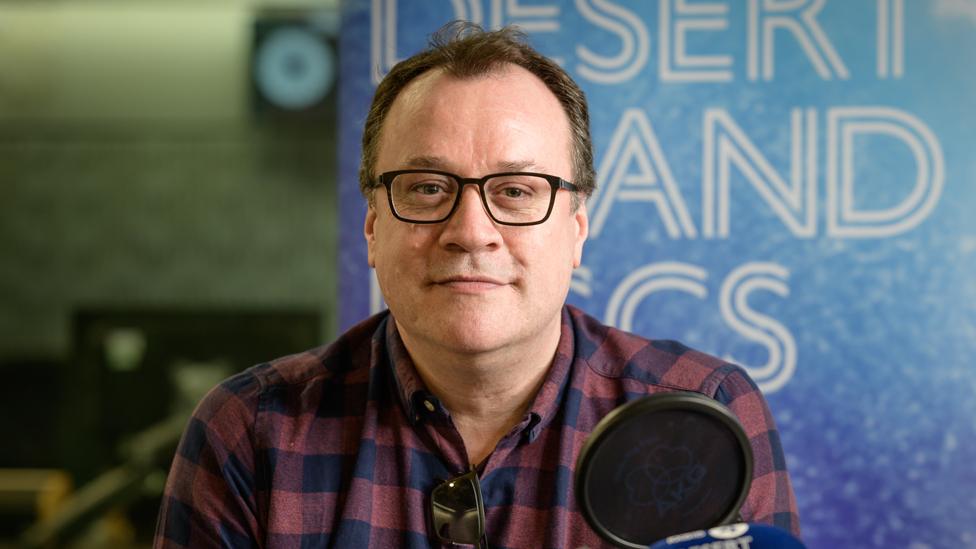
- Published4 October 2019

- Published21 July 2018
